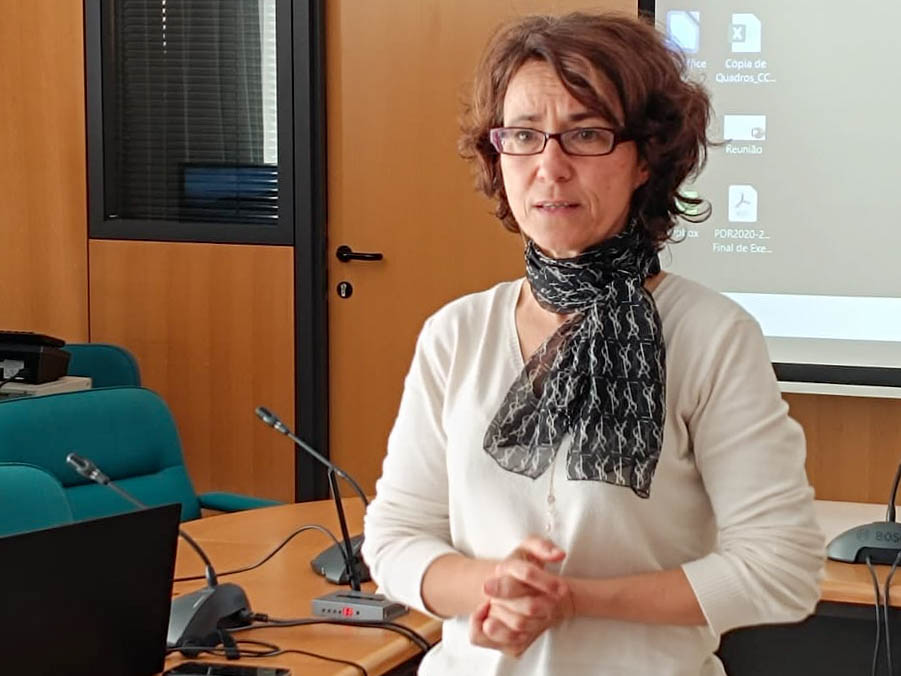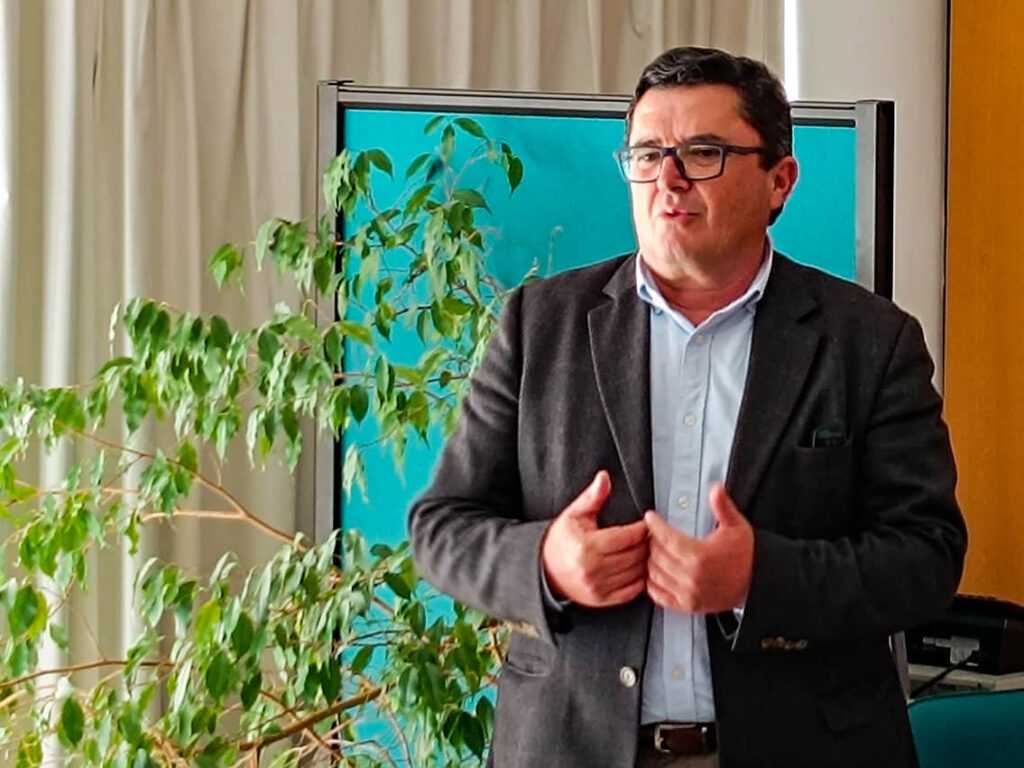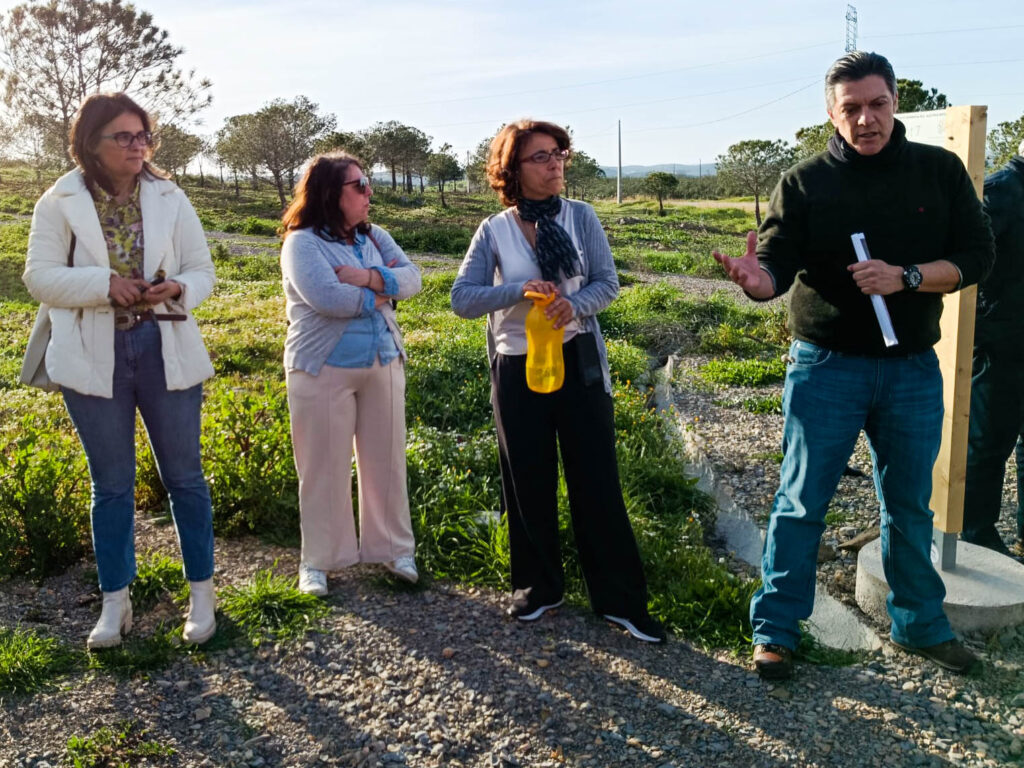It is an impoverished territory, like many that exist in the interior, but, due to its specific characteristics, it is also a kind of laboratory, where we seek to develop “cures” for desertification and other phenomena that accompany it, such as depopulation. Alcoutim is the “Km 0 of Desertification”, from which the Competence Center based there wants to start creating the path to combat this scourge.
The concept of kilometer zero arises from the work already carried out by the Competence Center for the Fight Against Desertification (CCDesert) and was the subject of a meeting that took place last week, in Alcoutim, where an assessment was made of what the center has been doing do, since its creation, in 2019, and chart the future path.
«Instead of dispersing, we are going to focus on this Km 0 of Desertification, which is one of the places where desertification indicators are highest and where depopulation is also great», with the aim of reversing these phenomena, Alice explained to journalists Teixeira, coordinator of CCDesert on the sidelines of the meeting.
To reverse desertification “we have to have people. Therefore, we will also have to do something to entice people to stay here».
This is achieved «in these changes that we want to make», which will bring with them «many jobs»
«If we want to have more trees, we have to plant them. If we want to measure the parameters, there have to be people there to measure them. We must associate tourism with the fight against desertification. We have to work on many things at the same time», defended Alice Teixeira.

The most visible part of what is already being done is the CCDesert Alcoutim&Mértola Experimental Field, where the best way to enrich the depleted soils of this territory is being studied, namely the intensive pine forest areas that were planted two decades ago, with support from European Union.
This was the project that was most in focus in the session, and even motivated a technical visit, guided by technician Hugo Pinto, from Associação Cumeadas.
In this experimental field, "a collection of elements, biodiversity, humidity from the sun" is being carried out, to find strategies so that decision-makers know "what they can do differently to make things change", said Osvaldo Gonçalves, president of the Chamber of Alcoutim.
«Basically, we are trying to understand what can be done differently with the soil, with the characteristics it has, with the conditions that exist, with the climate we have, to reverse desertification».
As for last week's session, it turns out to be an effort by CCDesert, the Chamber of Alcoutim, and Cumeadas – Association of Forest Owners of Cumeadas do Baixo Guadiana to reveal what has been done by the Skills Center and its partners in the fight against desertification.
«We feel a bit sorry for the lack of publicity about the work we have been doing. And it's not that the work is little", said Osvaldo Gonçalves.
«We work on these issues of desertification, related to a problem that is so visible and about which there are so many studies already done, but in which there is so much difficulty in moving from theory to practice and, above all, achieving results», he added.
Therefore, there has been some caution, «because we also don't want the communication itself to vulgarize the work that is being done».

In addition to the Alcoutim&Mértola Experimental Field, already completed, three other projects are still underway.
One of them is “Des100Des”, a project supported by PDR2020 described by CCDesert as an “observatory of potential rural development associated with actions to combat desertification”, based on a georeferencing tool to “support the decision of agents, actors and investors of susceptible territories”.
The other two are supported by the Recovery and Resilience Plan.
“Reaver – Mais Floresta” provides for “geographical modeling, to assess agroforestry susceptibility to desertification, among other parameters”.
“Robotic 4 Farmers”, for its part, intends to put “robotization at the service of agriculture”, through the “collection of data (soil, vegetation and biodiversity)” and its subsequent interpretation, using artificial intelligence.
This project also includes a component of “tests in weed control, with concentrated solar laser”.
So that these projects can succeed, Alice Teixeira talks about searching for the knowledge that already exists about desertification, to appropriate it.
«They gave us the Combat Against Desertification Competence Center badge. They gave us boxing gloves. So, let's fight! But, to do this, we have to have the strength, the technique and we have to appropriate the knowledge that already exists», concluded the CCDesert coordinator.



















Comments